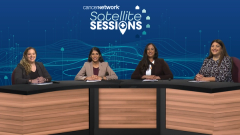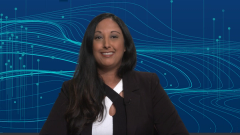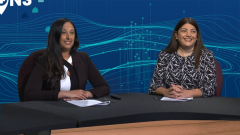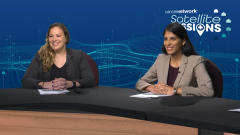
Treatment of MM: Value of Tumor Boards in Practice
Shared insight on the respective value of consolidation therapy and collaborative tumor boards when managing patients with transplant-eligible multiple myeloma.
Episodes in this series

Transcript:
Krina K. Patel, MD, MSc: In terms of the transplant-eligible patients, again, is there anybody you can consolidate rather than just use maintenance [therapy]? First of all, you can define what you mean by consolidate versus maintenance because everything means something different. Then, is there anybody you would definitely do a consolidation versus maintenance on besides high-risk patients just based on cytogenetics? What else does that mean?
Melody R. Becnel, MD: I’ll be honest, it’s kind of rare that I do true consolidation. There are cases where I’ve done it post-transplant if there’s a bit of disease still in the marrow, more so than MRD [minimal residual disease] positivity. In those cases, I have done consolidation. I had a patient I treated initially with KRd [carfilzomib, lenalidomide, dexamethasone], who went to transplant and had a pretty good response, but not ideal. I did consolidate with about 3 additional cycles of KRd before going to a true maintenance approach.
Tejo N. Musunuru, MD: Again, consolidation and maintenance are probably more interchangeable these days, so to speak. But the one I would consolidate is the transplant-ineligible patient who continued about 4 or 6 cycles of the treatment and then still had a PR [partial response], not VGPR [very good partial response], but more PR. Those are the ones for whom I probably would continue the triplet rather than switch to a maintenance strategy. That’s [when] I would do a consolidative approach as opposed to a maintenance approach.
Krina K. Patel, MD, MSc: Perfect, I agree. I think it is for those patients with extramedullary disease at diagnosis, which is rare, but we’re seeing a bit more of it than I used to. Those patients with plasma cell leukemia, again rare, but occasionally we see that. I think our patients with ultra-high risk, where it’s 2 cytogenic abnormalities not just one, we know they relapse really early post-transplant. So I think for all those patients, if they have any M protein, I try to consolidate and then go to a maintenance, but even the maintenance is a doublet or triplet.
Then I think the other interesting thing we have for any of our high-risk patients, which is almost all of them, is this tumor board. It was just today, right before we came here, where we present all these patients and come up with a consensus. A lot of times the answers are not in NCCN [National Comprehensive Cancer Network guidelines], they’re not. We have our pathologists, our radiologists, our radiation oncologist. A lot of times, with these extramedullary patients, we’ll do radiation with the induction. Do they need surgery? That came up today. When do we do neurosurgery for vertebral body insufficiency fractures versus radiation versus treatment? I don’t know, Melody, what do you think in terms of that conference?
Melody R. Becnel, MD: I think the conference is amazing, and I wish I wasn’t in the clinic on Thursdays so I could participate a bit more actively in it. But I agree, it’s a really useful conference. There are some challenging cases we present. There’s no right answer, and that’s the interesting thing with myeloma and with cancers in general. I’ll often have patients who are like, “Well, why did this doctor tell me this, and I’m getting this opinion?” I’m like, we could present your case at a tumor board and you’re going to get 5 different opinions. Everybody’s looking at your case, giving the best appropriate answer for what we think you can handle and things like that, but it’s still definitely useful.
Krina K. Patel, MD, MSc: I think it shows how you need multiple people helping you in myeloma. It involves everything. Nephrologists sometimes come on. We have lots of our colleagues in other departments who do other things who come on all the time. We call endocrine [specialists] sometimes with bisphosphonates. I’m like, “I can’t give a bisphosphonate. What do I do for bone strengthening?” Infectious disease [experts], that’s a big one too, which I think we’re going to get to in a bit when we talk about some of the later-line therapies we have.
Transcript edited for clarity.
Newsletter
Stay up to date on recent advances in the multidisciplinary approach to cancer.











































